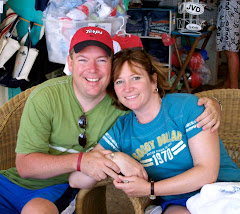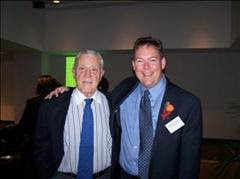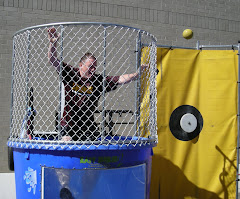40 Developmental Assetsfor adolescents (ages 12-18)
Source: Search Institute
The Power of Assets—Studies of more than 2.2 million young people in the United States consistently show that the more assets young people have, the less likely they are to engage in a wide range of high-risk behaviors and the more likely they are to thrive. Assets have power for all young people, regardless of their gender, economic status, family, or race/ethnicity. Furthermore, levels of assets are better predictors of high-risk involvement and thriving than poverty or being from a single-parent family.
The Gap—The average young person experiences fewer than half of the 40 assets. Boys experience three fewer assets than girls (17.2 assets for boys vs. 19.9 for girls).
EXTERNAL ASSETS
SUPPORT Family Support - Family life provides high levels of love and support
Positive Family Communication - A young person and her or his parent(s) communicate positively, and the young person is willing to seek advice and counsel from parents.
Other Adult Relationships - A young person receives support from three or more nonparent adults.
Caring Neighborhood - A young person experiences caring neighbors.
Caring School Climate - School provides a caring, encouraging environment.
EMPOWERMENTCommunity Values Youth - A young person perceives that adults in the community value youth.
Youth as Resources - Young people are given useful roles in the community.
Service to Others - A young person serves in the community one hour or more per week.
Safety - A young person feels safe at home, school, and in the neighborhood.
BOUNDARIES AND EXPECTATIONSFamily Boundaries - The family has clear rules and consequences and monitors the young person’s whereabouts.
School Boundaries - The school provides clear rules and consequences.
Neighborhood Boundaries - Neighbors take responsibility for monitoring young people’s behavior.
Adult Role Models - Parent(s) and other adults model positive, responsible behavior.
Positive Peer Influence - A young person's best friends model responsible behavior.
High Expectations - Both parent(s) and teachers encourage the young person to do well.
CONSTRUCTIVE USE OF TIMECreative Activities - A young person spends three or more hours per week in lessons or practice in music, theater, or other arts.
Youth Programs - A young person spends three or more hours per week in sports, clubs, or organizations at school and/or in community organizations.
Religious Community - A young person spends one hour or more per week in activities in a religious institution.
Time at Home - A young person is out with friends "with nothing special to do" two or fewer nights per week.
INTERNAL ASSETS
COMMITMENT TO LEARNINGAchievement Motivation - A young person is motivated to do well in school.
School Engagement - A young person is actively engaged in learning.
Homework - A young person reports doing at least one hour of homework every school day.
Bonding to School - A young person cares about her or his school.
Reading for Pleasure - A young person reads for pleasure three or more hours per week.
POSITIVE VALUES Caring - A young person places high value on helping other people.
Equality and Social Justice - A young person places high value on promoting equality and reducing hunger and poverty.
Integrity - A young person acts on convictions and stands up for her or his beliefs.
Honesty - A young person "tells the truth even when it is not easy."
Responsibility - A young person accepts and takes personal responsibility.
Restraint - A young person believes it is important not to be sexually active or to use alcohol or other drugs.
SOCIAL COMPETENCIES Planning and Decision Making - A young person knows how to plan ahead and make choices.
Interpersonal Competence - A young person has empathy, sensitivity, and friendship skills.
Cultural Competence - A young person has knowledge of and comfort with people of different cultural/racial/ethnic backgrounds.
Resistance Skills - A young person can resist negative peer pressure and dangerous situations.
Peaceful Conflict Resolution - A young person seeks to resolve conflict nonviolently.
POSITIVE IDENTITY Personal Power - A young person feels he or she has control over "things that happen to me."
Self-Esteem - A young person reports having a high self-esteem.
Sense of Purpose - A young person reports that "my life has a purpose."
Positive View of Personal Future - A young person is optimistic about her or his personal future.
http://www.search-institute.org/This list is an educational tool. It is not intended to be nor is it appropriate as a scientific measure of the developmental assets of individuals._Copyright © 1997, 2007 by Search Institute. All rights reserved. This chart may be reproduced for educational, noncommercial use only (with this copyright line). No other use is permitted without prior permission from Search Institute, 615 First Avenue N.E., Suite 125, Minneapolis, MN 55413; 800-888-7828. See Search Institute's Permissions Guidelines and Request Form. The following are registered trademarks of Search Institute: Search Institute®, Developmental Assets® and Healthy Communities • Healthy Youth®.






























